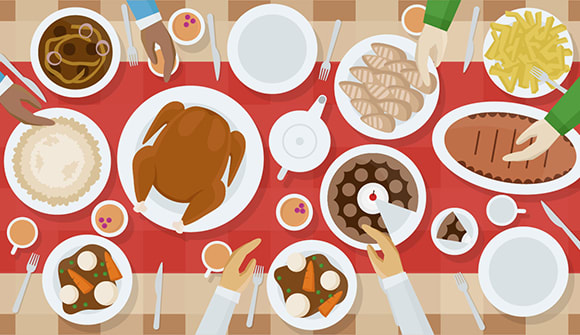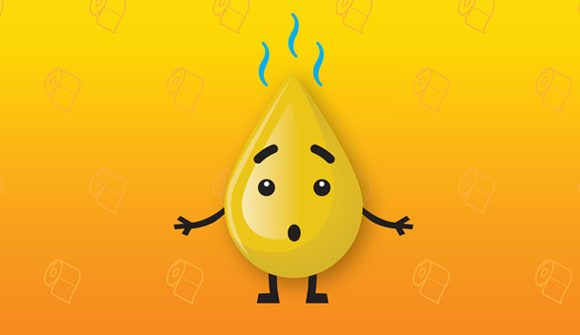Overstuffed on Thanksgiving
Concerned about calorie count? You probably don’t need to be.
Article Author: Juliette Allen
Article Date:

In the days leading up to Thanksgiving, Americans fill their pantries with fixings to make stuffing, gravy, mashed potatoes and cranberry sauce while bathing turkeys in brine in preparation for the big meal.
Chew on this
According to Consumer Reports, Americans will eat anywhere from 3,000 to 4,500 calories at Thanksgiving dinner alone.
“The number seems alarming, but for most people, a single meal like this won’t cause any long-term health issues,” said Sarah Adams, MD, a family physician with Baptist Primary Care. “People who are in overall good health can relax and enjoy the meal with family and friends.”
Conditions to take caution
All foods serve a purpose, whether it’s nutrition or just plain pleasure. There are certain conditions, however, that can be worsened when someone consumes a large amount of certain types of food in one sitting. Dr. Adams warned that if these conditions, like high blood pressure and diabetes, are uncontrolled, a high-calorie meal could trigger a life-threatening event like heart attack or stroke.
While balance is the name of the game for any type of food, here are some items to pay attention to while giving thanks:
Sugar. For people who otherwise consume a balanced diet, there’s no harm in enjoying some apple pie or other holiday dessert – after all, eating is about enjoying, too! However, according to the Centers for Disease Control and Prevention, long-term excess sugar intake can lead to health conditions like obesity, type 2 diabetes and heart disease. Check out these diabetes-friendly alternatives the whole family will enjoy.
Salt. Partaking in a single high-sodium meal is unlikely to pose any significant health problems. However, a regular diet full of processed and salty foods may cause or worsen high blood pressure, which increases the risk of heart disease. On Thanksgiving, you’ll find sodium in turkey brines and popular side dishes, like stuffing. If you’re looking to make even a slight reduction, try cooking your stuffing outside the turkey (another bonus: this method is safer from food-borne illnesses), and using vegetables like mushrooms, onions and celery to boost fiber and add flavor, sans salt.
Food for thought
None of this means you should clear out those pantries or start a new tradition of “Thanksgiving salad.” All it means, Dr. Adams said, is to maintain a healthy balance of foods as part of your regular lifestyle.
“Thanksgiving is a time to be grateful, not a time to worry. The best thing you can do is stay up to date on all preventive screenings and wellness exams so your primary care physician can provide you with personal guidance to live your best and healthiest life.”
Get help staying healthy during the holidays and beyond
A Baptist Primary Care physician works with you to help you make the best decisions to maintain your health, and can make referrals to specialists when needed. To find the right physician for you, call 904.202.4YOU or fill out the appointment request form.
Sources: Consumer Reports, Centers for Disease Control and Prevention



